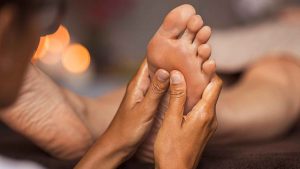Why Staying Hydrated is Crucial for Your Health
Water is more than just a refreshing beverage—it’s a fundamental component of every cell, tissue, and organ in the human body. The benefits of drinking water go beyond quenching thirst; it plays a pivotal role in hydration, bodily functions, and overall well-being. From regulating temperature to transporting nutrients, staying hydrated is essential for a healthy life. Understanding the importance of hydration can help you make better lifestyle choices and improve your overall health. According to Mayo Clinic, staying hydrated helps prevent kidney stones.
Key Benefits of Drinking Water:
- Keeps Your Body Cool: Water serves as the body’s primary cooling system. When body temperature rises, sweat glands release sweat onto the skin. As this sweat evaporates, it cools the body down, preventing overheating. Staying hydrated ensures this natural cooling process functions effectively.
- Helps Nutrient and Oxygen Transport: Water serves as the vital transport medium within the human body.
- Nutrient Delivery: It carries essential nutrients, such as vitamins, minerals, and glucose, from the digestive system to cells throughout the body, providing the fuel they need to function.
- Oxygen Transport: Water plays a crucial role in transporting oxygen from the lungs to cells, where it’s used in the process of cellular respiration to produce energy.
- Waste Removal: Water helps flush out waste products, such as toxins and metabolic byproducts, through urine and sweat, ensuring efficient waste disposal.
- Joint Lubrication and Protection: Water acts as a lubricant within joints, enabling smooth and pain-free movement. It cushions the joints, reducing friction and wear and tear.
- Brain Power: The brain, composed of approximately 73% water, is highly sensitive to dehydration. Water is essential for maintaining proper brain function, including cognitive processes such as:
- Concentration: Dehydration can impair focus and attention.
- Memory: Water is crucial for optimal memory and cognitive function.
- Mood Regulation: Dehydration can contribute to feelings of fatigue, irritability, and even anxiety.
- Digestive Support: Water plays a vital role in the digestive process. It helps break down food, allowing for the efficient absorption of nutrients. It also helps soften stool, preventing constipation.
- Skin Health: Water is essential for maintaining healthy skin. It helps keep the skin hydrated and plump, improving its elasticity and reducing the appearance of wrinkles.
- Physical Performance: Adequate hydration is paramount for optimal physical performance. Dehydration can lead to:
- Fatigue: Reduced blood volume due to dehydration can impair blood flow to muscles, leading to fatigue and decreased endurance.
- Muscle Cramps: Dehydration can disrupt electrolyte balance, increasing the risk of muscle cramps.
- Increased Risk of Heat-Related Illnesses: In hot weather, dehydration can significantly increase the risk of heat exhaustion and heatstroke.
- Thirst:You may already be dehydrated if you feel thirsty.
- Dry Mouth & Throat: Common signs of low fluids..
- Headache & Dizziness: Dehydration can cause lightheadedness.
- Fatigue & Confusion: Low hydration leads to tiredness.
- Dark Urine:Dark yellow urine means you need more water.
- Carry a Water Bottle: Keep a reusable water bottle with you throughout the day and sip from it regularly.
- Infuse Water: Add slices of fruit (like lemon, cucumber, or berries) or herbs (like mint) to your water for added flavor.
- Eat Water-Rich Foods: Include plenty of fruits and vegetables in your diet, as they contain high water content.
Examples include watermelon, cucumber, celery, and lettuce. - Limit Sugary Drinks: Avoid sugary drinks like soda, juice, and sweetened tea, as they can contribute to dehydration and provide empty calories.
- Listen to Your Body: Pay attention to your thirst signals. Drink water throughout the day, even if you don’t feel overtly thirsty.
- Hydrate Before, During, and After Exercise: Drink plenty of fluids before, during, and after physical activity to prevent dehydration. Check out our guide on best hydration habits
- World Health Organization: The Importance of Hydration
- Mayo Clinic: How Much Water Do You Really Need?

Signs of Dehydration:
Tips for Optimal Hydration:

How Much Water Do You Need?
While individual water needs vary, a general guideline is to drink at least 8 glasses (2 liters) per day. Factors such as climate, activity level, and health conditions may increase daily hydration requirements.
Check out our daily water intake calculator.
Additional Resources
Disclaimer:
This information is for general knowledge and informational purposes only and does not constitute medical advice. Always consult with a qualified healthcare professional before making any significant dietary changes, especially if you have any underlying health conditions.
By prioritizing adequate hydration, you can significantly improve your overall health and well-being.
How do you stay hydrated? Share your favorite hydration tips below!




